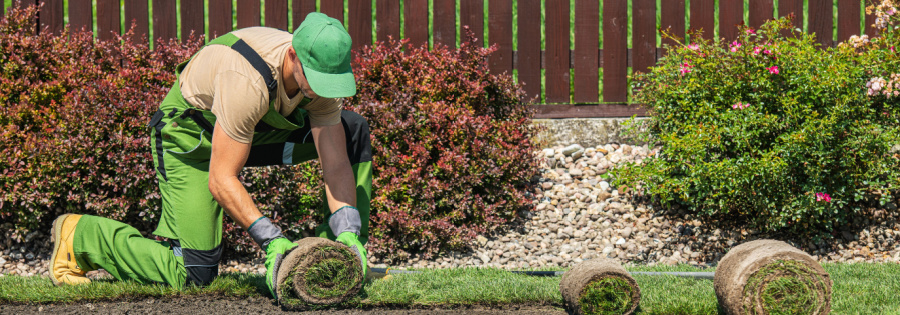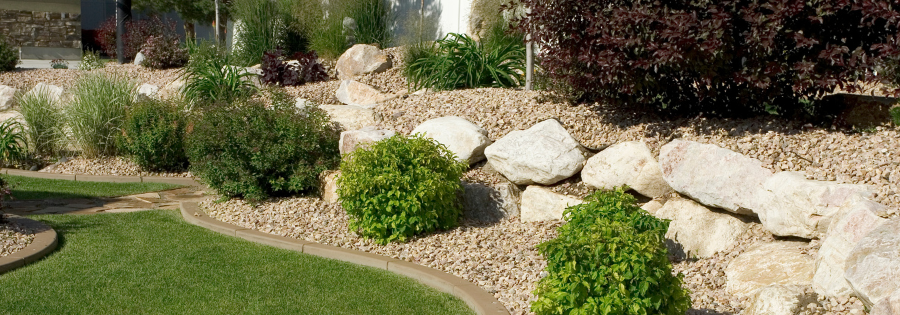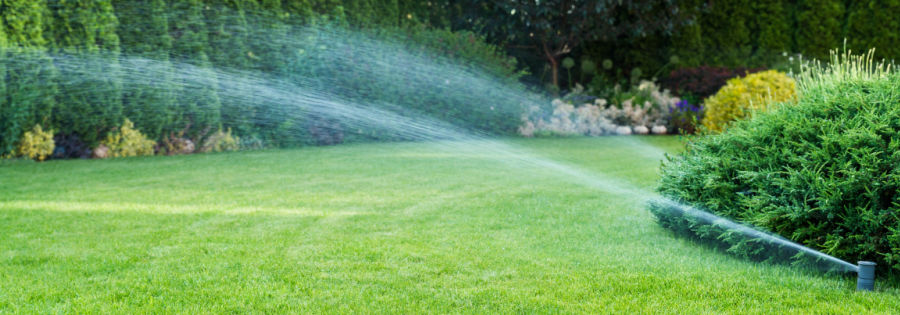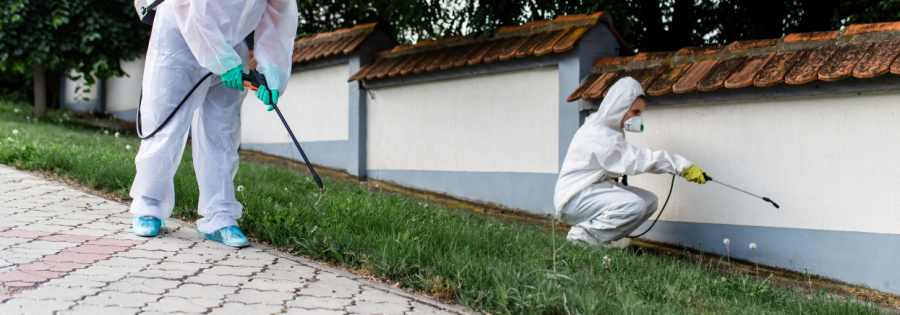Sustainable Landscaping Ideas for Your Business

In today’s environmentally conscious world, more businesses are embracing sustainable practices, and landscaping is no exception. Sustainable landscaping not only enhances the aesthetic appeal of your business premises but also reduces environmental impact and promotes a healthier community.
So, if you’re looking to create a greener and more eco-friendly outdoor space for your business, here are some sustainable landscaping ideas to consider.
1. Native Plantings
Choosing native plants for your industrial landscaping offers numerous benefits. Native plants are adapted to the local climate and soil conditions, requiring less water, fertilizer, and maintenance compared to exotic species. They also provide habitat and food for local wildlife, supporting biodiversity. Incorporate a variety of native flowers, grasses, shrubs, and trees into your landscape design to create a vibrant and resilient ecosystem.
2. Drought-Tolerant Landscaping
In regions prone to drought or water restrictions, opt for drought-tolerant landscaping. Choose plants that can thrive with minimal irrigation once established, reducing water consumption and irrigation costs. Succulents, ornamental grasses, and Mediterranean herbs are excellent choices for creating a water-wise landscape that remains attractive year-round.

3. Permeable Hardscapes
Permeable hardscapes, such as permeable pavers, gravel pathways, or porous asphalt, are integral components of sustainable landscaping. Unlike traditional impermeable surfaces like concrete, permeable hardscapes allow rainwater to infiltrate into the soil rather than generating runoff. This infiltration helps recharge groundwater supplies, reduces stormwater runoff, and minimizes the risk of flooding and erosion. By capturing and filtering rainwater as it percolates through the ground, permeable hardscapes also help remove pollutants and contaminants, improving water quality in nearby water bodies.
Additionally, these sustainable hardscaping solutions reduce the burden on municipal drainage systems. They also promote the natural hydrological cycle, making them environmentally friendly choices for businesses looking to minimize their ecological footprint while enhancing the aesthetics of their outdoor spaces.
4. Rainwater Harvesting
Install rain barrels or cisterns to collect rainwater from rooftops for irrigation purposes. Rainwater harvesting reduces reliance on municipal water sources and conserves freshwater resources. Use harvested rainwater to irrigate your landscaping, water outdoor plants, and even flush toilets in commercial buildings.
5. Smart Irrigation Systems
Commercial irrigation systems can offer property owners a sustainable solution to water management by optimizing water usage and minimizing waste. By utilizing real-time weather data, soil moisture sensors, and advanced scheduling algorithms, smart irrigation systems deliver the right amount of water directly to plants’ root zones when they need it most. This targeted approach reduces water consumption, lowers utility costs, and conserves precious freshwater resources.

Additionally, by preventing overwatering and runoff, smart irrigation systems promote healthier plant growth and soil health while reducing the risk of water-related issues like erosion and nutrient leaching. Ultimately, smart irrigation technology enhances landscape sustainability by promoting efficient water use and environmental stewardship for property owners.
6. Composting and Mulching
Composting and mulching are essential practices in sustainable landscaping that contribute to soil health, water conservation, and waste reduction. Composting organic waste, such as grass clippings, leaves, and plant trimmings, creates nutrient-rich compost that enriches soil fertility and structure naturally. By using compost as a soil amendment, businesses can reduce reliance on synthetic fertilizers and promote healthy plant growth.
Mulching, on the other hand, helps retain soil moisture, suppresses weed growth, and moderates soil temperature, reducing the need for irrigation and weed control chemicals. Both composting and mulching contribute to sustainable landscaping by closing the nutrient cycle, minimizing waste sent to landfills, and promoting a healthier, more resilient landscape that requires fewer inputs and resources.
7. Integrated Pest Management (IPM)
By utilizing a combination of cultural, biological, and mechanical pest control methods, IPM minimizes reliance on chemical pesticides that can harm beneficial insects and wildlife. IPM strategies focus on prevention, monitoring, and targeted interventions to manage pest populations effectively while reducing ecological impact.

By incorporating IPM into landscaping practices, businesses can protect plant health, preserve biodiversity, and promote a healthier ecosystem without compromising environmental sustainability. This approach not only controls pests efficiently but also contributes to a balanced and harmonious outdoor environment conducive to long-term landscape health.
Coastal Spray: Your Partner in Sustainable Landscaping
Ready to transform your business’s outdoor space? Coastal Spray specializes in implementing eco-friendly, low maintenance landscapes for commercial properties. Our team of experienced professionals can help you incorporate these sustainable landscaping ideas and more to create a beautiful, environmentally responsible landscape that reflects your business’s commitment to sustainability.
Take the first step towards a greener future for your business. Contact Coastal Spray today to speak with one of our landscaping experts.